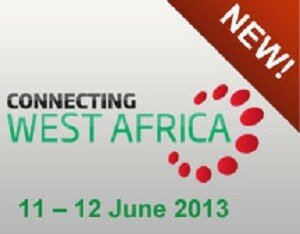
comworldseries.com
As telecommunication operators are no longer the only communication channels available to consumers, their role in the industry is under question.
There is no doubt about mobile devices’ global domination as playing an increasing, integral part across society’s industries.
With the growing accessibility to the internet a benefit of mobile devices, services are more readily available with a few clicks or even a voice command away.
As data becomes more shareable on a variety of apps, content provision channels are slowly but surely posing a potential threat to telecoms, who are predominantly or rather traditionally seen as the supplier of communication connections.
Whereas existing, successful telecommunication companies come a long way through surviving or rather keeping up with the continuously and rapidly evolving technological landscape, social networks and applications are offering similar services, giving consumers a wider choice.
Industry players seem to generally see the solution in collaborations. With content and data provision as a big factor, working together for stronger networks is the main goal.
However, others point to the unavoidable structural differences, presenting a more complicated process of integration than what is perhaps seen at first glance as an utopian merge.
Another aspect to consider in the global village of society, becoming more networked in its operations, is the balance between local and international stakeholders.
Whereas Africa is certainly not behind when it comes to mobility, the development of local solutions is still in a growing curve towards a well established ecosystem.
Considered collaborations could be an opportunity for African telecommunication companies, mobile operators, social networks and application developers to engage in a supportive way for the building of African brands.
Whereas local development may be sufficient for the African market, the role of successful entrepreneurs on own soil could build a bridge to reach the international market by offering innovative solutions to a universal issue society faces.
The role of social networking both ironically and logically plays a significant role as cross-continental relationships are established in reaching agreements to the benefit of all.
At the Digital Services Africa conference held in Johannesburg, South Africa, last week, the question of telecoms becoming solely a ‘dumb pipe’ came up in various discussions, including the future ventures of social media chat apps and mobile money.
Both thriving sectors in Africa, the continent could be more than just a participant in the rush for network strength in the competitive content sharing communication space.
Although cultural differences may be viewed as the Achilles heel of old, technology’s ability to breach barriers can be utilised to build a sustainable community through offering connections and innovative ideas beyond geographical constraints.
Entrepreneurial success stories are soaring from African countries, hopefully also instilling more trust towards risk averse investors who are not yet as comfortable with the adventure of giving birth to a startup and feeding its concepts to an inspirational success.
Nicholas Okoye, president and chief executive officer at the Anabel Leadership Academy, recently spoke about the government’s role in motivating trust in technology.
Change need not be a threat, but rather proposes an opportunity for synergy between parties despite location, resulting in a new platform for more future developments as technology brings society closer.


















